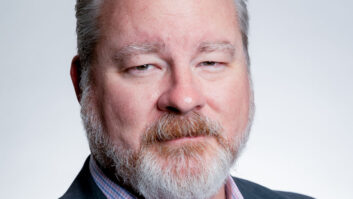LAS VEGAS — For the Federal Communications Commission (FCC), this will be a ‘year dominated by high technology’ issues, FCC chairman Michael Powell told a CES audience yesterday morning during a One-On-One session where he fielded questions offered up by CEA president Gary Shapiro.
Powell acknowledged that the spread of digital technology has complicated the issue of copyright infringement. He said the music industry’s fight against music-file swapping on the Internet is understandable. ‘We have seen this every time’ a new copying technology arrives. The government’s role in the issue ‘is quite central,’ as copyright is a right granted by the government,’ he pointed out.
But history shows ‘new products begin to solve these problems,’ and with this new generation of consumers making copies, you ‘can’t just ignore the way they want to do it.’ Digital ‘is the best copying machine,’ ever, it is ‘going to empower individuals,’ and software owners ‘should be supporting it rather than just wringing their hands.’
Powell said the FCC is looking forward to the day television broadcasters give up their VHF channels and complete the transition to all-digital transmission in the UHF band. However, he stressed, the 2006 date the FCC set for the total changeover is really just ‘an aspiration date,’ and the real trigger for that is the requirement that 85 percent of homes in the market be equipped for digital reception. As to when that will happen, ‘It could come very fast,’ or it could take longer. ‘It will come at exactly the pace it should come,’ he said.
However, Powell said, it is unlikely that the United States will help speed up the analog TV phase out by following the program in Berlin where the German government subsidized set-top tuner purchases by consumers.
As to what use should be made of the then-vacant spectrum space, ‘the best is Wi-Fi, it shows what we can do with technology,’ Wireless ‘isn’t just telephones,’ Powell stressed, ‘it covers all fields,’ and ‘we are committed to throwing wires out of the home.’
When it comes to radio, ‘digital is the future,’ said Powell. The ‘Information Age is dependent on digital distribution,’ and ‘we can’t have a ‘one-size-fits-all’ medium.’ For radio broadcasters, ‘staying where they are is no solution for the future,’ and digital ‘could be a resurgence for radio.’ He applauded the new radios being made for the XM and Sirius digital satellite services that let users ‘pop it [receiver] out and take it with you.’
On the issue of regulating voice communication over the Internet, Powell said federal and state agencies ‘each have thousands of pages’ of regulations, all written for twisted pair telephone service, not ‘for new technologies.’ The issue ‘won’t be limited to voice,’ but will encompass the transmission of e-mail, video, photo and all use the same data stream, so you ‘can’t differentiate’ among them. The danger, he indicated, lies in having the rules drafted by regulators ‘who don’t understand the technology.’
The CEA, broadcasters and cable operators got together to agree on a standard for digital video television plug-and-play, and now need to reach an agreement on interactivity,’ Powell stated. The FCC’s role here, he said, should again be ‘to help them get together,’ rather than force a standard of its own that might make future innovation more difficult.













